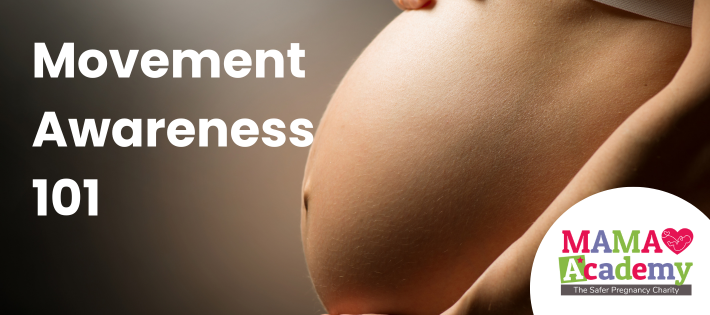Movement Awareness 101: What’s Normal, What’s Not, and Who to Call
Published on: 20/11/2025
Your baby’s movements are one of the most important signs of their wellbeing during pregnancy. They can feel different for everyone, flutters, rolls, nudges, stretches, but one thing is true for all pregnancies:
Your baby develops their own unique pattern of movement, and you are the person who knows that pattern best.
Movement awareness isn’t about counting kicks or tracking numbers. It’s simply about paying attention to what’s normal for your baby and acting quickly if anything feels different.
This guide explains what’s expected, what might be a warning sign, and exactly who to call if you ever feel unsure.
What’s normal movement in pregnancy?
Most people start feeling movements between 16–24 weeks, and from that point onwards, movements will gradually become more consistent and recognisable.
Normal movement includes:
-Regular movements every day once you start feeling them
-A pattern that becomes familiar to you
-Movements should remain regular and follow your baby’s usual pattern as pregnancy progresses
-A mix of kicks, swirls, rolls, stretches, and jabs
-Often movements are easier to notice when you’re resting or winding down, knowing this pattern can help you spot when something’s different.
A common myth is that babies move less towards the end of pregnancy because they “run out of space”.
This is not true. Babies should continue to move in their usual pattern right up to and including labour.
What’s not normal?
Anything that feels different to your baby’s usual pattern is a reason to get checked.
Call your midwife or maternity triage immediately if you notice:
-Reduced movement
-Movements that feel weaker or slower than usual
-A sudden drop in movement compared to their normal pattern
-An absence of movement
-A change that gives you an uneasy feeling
You do not need to wait a certain number of hours.
You do not need to wait for it to happen again.
And you will never be wasting anyone’s time.
If something feels “off”, that’s enough.
Your instincts matter.
Why movements matter
Movements are a key indicator that your baby is getting the oxygen and nutrients they need.
A change in movement can sometimes be an early sign that your baby needs extra monitoring or support.
Calling quickly means you can:
-Be checked on CTG or listened to with a Doppler
-Have your baby’s wellbeing assessed
-Get reassurance or early care if needed
The earlier a change is noticed, the sooner the maternity team can act.
What happens when you call?
When you call your midwife or maternity triage/MAU, they may ask you to come in to be monitored.
This is routine, and it’s exactly what they’re there for.
You might have:
A CTG (heart rate monitoring)
A check on your blood pressure and wellbeing
An ultrasound if needed
A conversation about what feels different
Most of the time parents are reassured, but attending quickly is always the right decision.
When to call and who to call
If you notice any change in your baby’s movements, call immediately:
📞 Your maternity triage or MAU
📞 Your midwife
📞 Labour ward (if you’re 37+ weeks)
If you’re ever unsure who to ring, call the number on the front of your notes, or NHS 111 if you cannot get through quickly.
Do not wait until the next morning.
Do not wait for your next appointment.
Call now.
Trust your instincts
Movement awareness is not about anxiety, it’s about confidence.
Confidence in knowing what’s normal for your baby.
Confidence in speaking up if something feels different.
Confidence in acting early.
You know your baby’s pattern better than anyone else.
If something changes, you’re allowed to call, and you should.
It’s one of the simplest things you can do for your baby’s safety.
